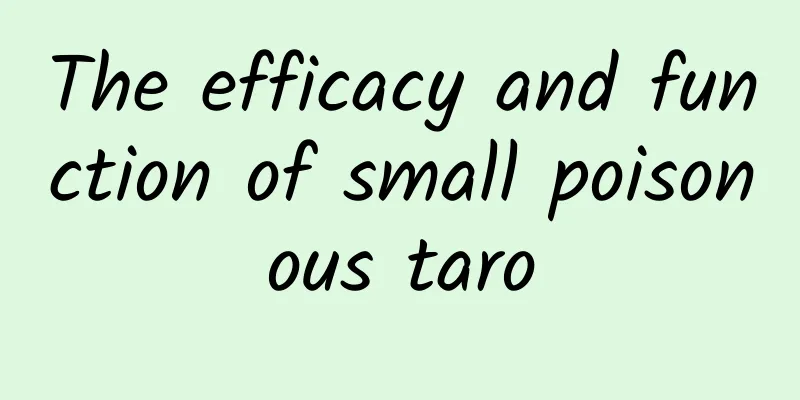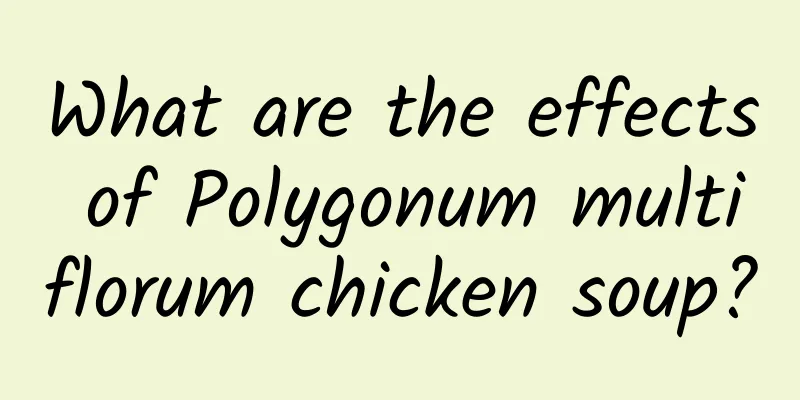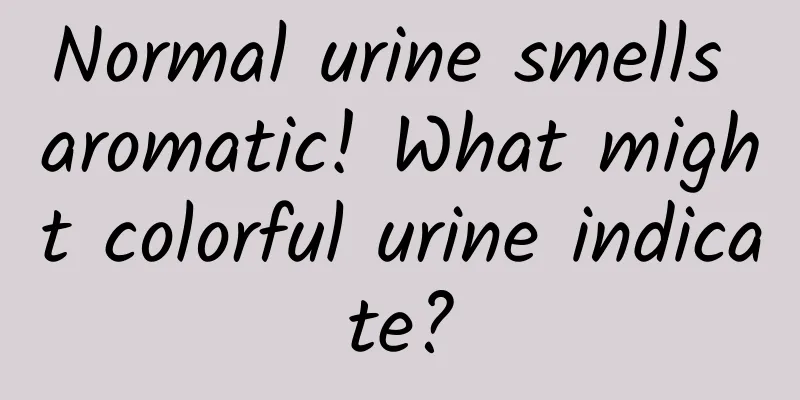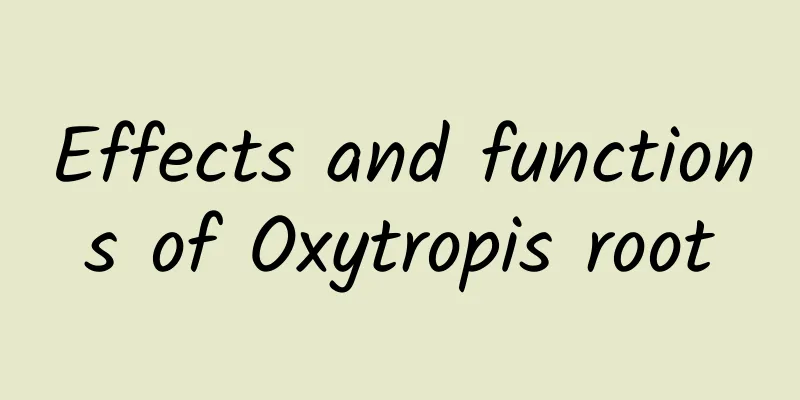The efficacy and function of small poisonous taro

|
Traditional Chinese medicine culture is profound and extensive, and Chinese medicinal materials account for a large proportion of it. Do you know about the small poisonous taro? What are its effects and functions, and how to eat it? I believe many people are very interested in it. Let me tell you one by one below. [Other names] Taro, Tuan Yam [Source] Medicinal material source: The rhizome of the Araceae plant Quanqi. [Original form] Quanqi, perennial herb. Stem short, cylindrical, ascending, 2-3 cm thick, with remnant leaf sheaths. The petiole is cylindrical, green or rarely bluish-purple, slender, 30-50cm long, and sheathed at the bottom; the leaf blade is thinly leathery, ovate, 20-30cm long, 12-17cm wide, with a sharp or acuminate tip, a slightly concave or slightly convex base, light green on the surface, and green-white on the back; there are 5-7 pairs of veins. The inflorescence stalk is green or purple, 8-15cm long; the outer upper part of the spathe is yellow, the base is purple, the inner upper part is purple, the base is dark purple, ovate-acicular or oblong-acicular, the apex is long-tailed and acuminate, the base is obtuse or round, erect at first, and then curled; the spadix is 3-4cm long; the female inflorescence is 2-2.5cm long, cylindrical, 2-3mm thick, and the back 3/4 is fused with the spathe; the male inflorescence is elliptical, 1-1.5cm long, 5-6mm thick; the flower has no perianth; the ovary of the female flower is nearly spherical, the stigma is 4-5 lobed, and there are pseudostamens around the ovary; the male flower has a prismatic or nearly cylindrical fused stamen column. The berries are oval and the seeds are oval. Flowering period is March-April. [Habitat distribution] Ecological environment: Grown in moist land under dense forests at an altitude of 650-1400m. 【Nature and flavor】 Spicy; cold; toxic 【Functions and indications】Hemostasis and tissue regeneration; detoxification and swelling reduction. Gunshot wounds; traumatic bleeding; thromboangiitis; sores, boils, and swellings; snake and insect bites 【Usage and Dosage】 For external use: apply appropriate amount, mash and apply; or grind into powder and sprinkle. 【Excerpt】 Chinese Materia Medica From the above introduction, it is not difficult to see that the small poisonous taro has many functions. People in daily life can eat the small poisonous taro in appropriate amounts according to their physical conditions. After a period of time, your physical condition will be greatly improved. |
<<: The efficacy and function of small flowered maple
>>: The efficacy and function of small red garlic
Recommend
Black takeaway tableware is the dirtiest? Judging by color alone is unreliable!
gossip “Black plastic cutlery is the dirtiest” Th...
The efficacy and function of Snakehead
Snakehead snakehead is a common Chinese medicine ...
Can wild mugwort be eaten?
Nowadays, more and more people like to return to ...
What are the effects of white flower heartbroken grass
Speaking of white flower heartbreak grass, everyo...
What are the medicinal uses of Gastrodia elata?
Gastrodia elata, a common Chinese medicine, mostl...
The new coronavirus has spread among deer? Can humans defeat the epidemic?
According to a Nature brief on April 26, a team o...
Why do some bank card numbers have 16 digits and some have 19 digits?
Do you know what the numbers on your ID card repr...
What are the effects of Astragalus?
Although there are many herbs in our lives, most ...
Real-life version of "Fragrant Concubine"? Newborns have a sweet fragrance all over their bodies that can't be washed off! It turns out to be a disease...
Expert of this article: Zhu Hongjian, Director of...
What are the effects and functions of citrus?
In real life, citrus fruits are evergreen trees, ...
The efficacy and function of skink
There are many kinds of common Chinese medicinal ...
Does the beginning of winter mean winter? Does it mean winter for you? This article will help you figure it out.
Today is the Beginning of Winter. Does this mean ...
"Sniper" or "Silly Sheep", what kind of fantail sand cone are you?
"Sniper" or "Silly Sheep", wh...
After 27 years of outstanding achievements, Ariane 5 rocket officially ends
In the early morning of July 6, Beijing time, Eur...
What is Basil
Basil is a herb that is widely used in traditiona...









